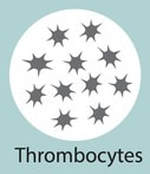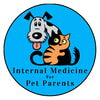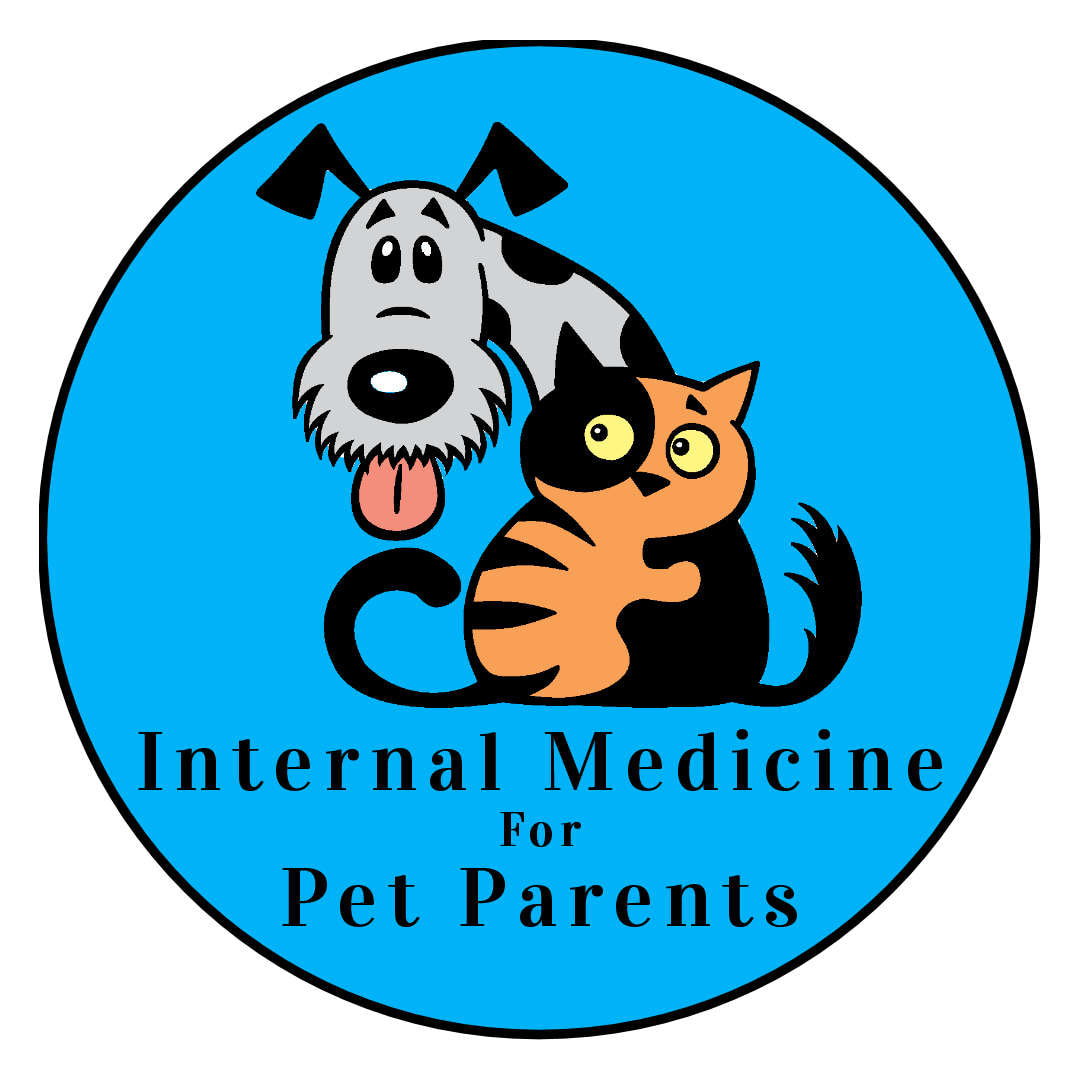Who can get IMTP?Primary IMTP is more commonly seen in middle aged female dogs, especially Cocker Spaniels, German Shepherds, Poodles, and Old English Sheepdogs. Unfortunately, although it is more common in these breeds, it can happen at any age, any sex, and any breed. Secondary IMTP can occur in any pet as there is a secondary condition like infection, cancer, or sepsis causing the IMTP. What is IMTP? Immune Mediated Thrombocytopenia (IMTP) involves the immune system attacking the platelets (the cells that make clots). Thrombo- is platelet; -cyto- is cell; and -penia means lack or deficiency. So, thrombocytopenia literally means the deficiency of platelet cells. We discuss the immune systems over reacting in a Topic of The Week post here. In the case of IMTP, the body’s immune system sees platelets as a foreign invader needing to be destroyed. The immune system no longer recognizes the platelets as belonging to the animal and starts breaking down the cells. This can cause severe bruising or spontaneous bleeding as the pet can no longer form clots. Platelets are crucial for clot formation. Throughout the course of a regular day a normal, healthy pet will have small capillary bleeds when they move, bump into things, chew on kibble, chew on sticks, and so on. Normally we don’t see these small cuts or bruises because the body quickly creates a small clot repairing the capillaries (the smallest blood vessel) before blood can leak out. The problem is when there are not enough platelets circulating in the blood stream to form the clot needed. This causes small pin point bruises called petechiae. Common places for these to be seen are on the gums, groin, and abdomen. IMTP patients can present with bruising, either small pin point spots (pettechia) or large bruising (ecchymoses). They can have spontaneous bleeding such as nose bleeds (epistaxis), bloody urine (hematuria) or stool (hematochezia), bloody vomit (hematemesis), or other random bleeding. These patients may also be anemic, pale, lethargic, or not eating because they may have had excessive bleeding from not being able to clot appropriately. There are a large number of platelets circulating around in the blood. Typically there are 175,000-500,000 platelets in every microliter of blood (175k-500k/mcL). We get extremely concerned when numbers fall below 50k-75k/mcL and monitor very closely. Spontaneous bleeding can occur when the platelets are less than 20,000 per microliter (20k/mcL). Depending on the severity of the thrombocytopenia, the pet can become anemic. We discuss blood transfusions in the hematology section here. Handling these patients extremely carefully is crucial. When venipuncture is performed to obtain blood, it is crucial for it to be from a periphreal spot like the arms or legs, and a pressure wrap is suggested for a minimum of 30 minutes with close monitoring of the site once the bandage is removed for continued bleeding/bruising. It is important to not do jugular venipuncture (the neck is the common place to get blood from animals) as it can cause large bruises and as you can imagine is a difficult place to bandage. These patients should only eat soft or wet food until their platelet numbers are above 75k/mcL or the veterinarian gives the okay to feed kibble again. During this time, your pet should not chew on toys, bones, or other rough objects. Do not let them run, or play rough. I also recommend to not use a neck collar during this time, just use a harness to prevent bruising on the neck. Unlike pets with IMHA, IMTP patients typically do not act as sick or lethargic, so they may want to do more than they are allowed to do. It’s our job to keep them from hurting themselves. Close monitoring of platelet cell counts are done by manual platelet counts in the hospital or sent out to the lab. These pets may present with no platelets on a blood smear (or 0k/mcL), and it can take several days for the body to start producing enough platelets for your veterinarian to send the pet home. Due to the risk of bleeding close monitoring of PCVs are also done to ensure the pet does not need a blood transfusion from anemia. Check out the post about Diagnosing Immune Disease for more information on how the veterinarian determines the lack of platelets is from an auto-immune disease. What happens after diagnosis?It is common for patients to be hospitalized a few days to a week depending on how their body’s respond to the medications. We've discussed immunosuppressive drugs in the post titled Treating Immune Mediated Diseases, check it out for more info on what drugs may be sent home. Close monitoring of the platelet count and CBC will help veterinarians know when treatment is starting to suppress the immune system. It can take 2-5 days for steroids to kick in. It can also take bone marrow 7 days to create new blood cells and release them into circulation. It can be common for a platelet count and CBC once a day while in the hospital. Typically pets remain hospitalized until the platelet count is at least 50/mcL, but this may vary depending on how the patient is doing overall. Your veterinarian will discuss with you treatment options and plan for your pet and when it is safe to go home. TreatmentTypically treatment for IMTP is to suppress the immune system. We discuss the drugs for suppressing the immune system in the blog titled Topic of the Week: Treating Immune Mediated Diseases. A platelet transfusion is an option, however there may not be enough platelets in the transfusion to be a benefit. Also, the typical lifespan of a platelet is about 1 week, and that is from the moment they are released into circulation. So, platelet transfusions are not typically recommended. If a pet is having difficulty suppressing the immune system enough and the platelet count doesn't increase quickly, one option is to give a dose of vincristine, a chemotherapy drug. There is controversy about the efficacy of vincristine. Some studies have show that, yes, platelets are released following the administration of the drug, however, the functionality of the platelets may not be normal. This means that even though we see higher number of platelets circulating in the blood they may not function to form a clot, so the pet may still have bleeding issues. Another treatment can be a splenectomy. This is usually a last resort and is not for an animal in an acute crisis. Hip-Hip Hooray! We're going home!You just got the call that your precious fur-baby is coming home! Yay!! Now the long battle begins. Unless your pet was diagnosed with a tick borne disease, your pet may be on life-long medications and need close monitoring. It is common to have recheck CBC's with platelet counts every 1-2 weeks initially and then as your pet stays in remission and is weaned off of medications the rechecks can be as infrequent as once a month to once every few months. Your veterinarian will work with you closely to develop your pets individual treatment plan. If keep track of medications is a struggle, we have a weekly medication tracker to help as a free gift for signing up for our newsletter. Want to know more?We hope this helps with this confusing and overwhelming disease. Please feel free to leave a comment below if you have a question or email at [email protected] and I'll be happy to talk to help if I can. Learn more about IMTP and related subjects by checking out the hematology and immunology sections of the website. Also visit the other blog posts related to the immune system and IMTP here. AuthorYvonne Brandenburg, RVT, VTS (SAIM) is a Registered Veterinary Technician practicing in California and obtained her Veterinary Technician Specialty in Small Animal Internal Medicine in 2016. She is the founder of InternalMedicineForPetParents.com. For more about Yvonne visit her author page here.
Comments
|

Ready to Work Together?
Thank you!You have successfully joined our subscriber list. This website is NOT a substitute for veterinary care with a veterinarian. We recommend you follow the advice and treatment plan as prescribed by your veterinarian, and only after discussing anything found on this website with your veterinarian, with their approval, implementing advice found here.
Most of the information on this site is free for you to read, watch or listen to, but Internal Medicine for Pet Parents is also a business. So please expect hyperlinks to be affiliate links in many cases, where we receive a small percentage of sales if you wish to purchase. We only recommend tools, books and services that we use, or people we know personally. Integrity and authenticity continue to be of the highest importance to us. Read the privacy policy here. We hope you find the site useful! Thanks – Yvonne and Ashley Check us out on Facebook!
Categories
All
Archives
October 2019
|



 RSS Feed
RSS Feed